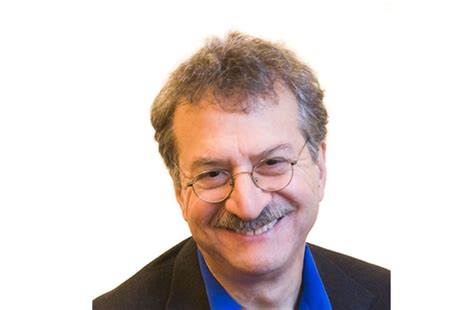A Quote by William James
Philosophy, beginning in wonder, as Plato and Aristotle said, is able to fancy everything different from what it is. It sees the familiar as if it were strange, and the strange as if it were familiar. It can take things up and lay them down again. It rouses us from our native dogmatic slumber and breaks up our caked prejudices.
Related Quotes
Was it Aristotle who said the human soul is composed of reason, will, and desire?” “No, that was Plato. Aristotle and Plato were as different as Mel Tormé and Bing Crosby. In any case, things were a lot simpler in the old days,” Komatsu said. “Wouldn’t it be fun to imagine reason, will, and desire engaged in a fierce debate around a table?
I was a big fan of a writer named Jack Vance, a science fiction writer. He always wrote about these guys who were either going down a river in a strange world or would be in this one land where people acted really strange, and he'd have these interactions with them that were strange - he'd usually get run out of town or something. Then he'd end up in the next town over where the rules were totally different. And I love this stuff.
Strange indeed is human nature. Here were these men, to whom murder was familiar, who again and again had struck down the father of the family, some man against whom they had no personal feeling, without one thought of compunction or of compassion for his weeping wife or helpless children, and yet the tender or pathetic in music could move them to tears.
Back in World War II, we viewed the Japanese as 'yellow, slant-eyed dogs' that believed in different gods. They were out to kill us because our way of living was different. We, in turn, wanted to annihilate them because they were different. Does that sound familiar, by any chance, to what's going on today?
Grownups! Everyone remembers them. How strange and even sad it is that we never became what they were: beings noble, infallible, and free. We never became them. One of the things we discover as we live is that we never become anything different from what we are. We are no less ourselves at forty than we were at four, and because of this we know grownups as Grownups only once in life: during our own childhood. We never meet them in our lives again, and we will miss them always.
It is a curious emotion, this certain homesickness I have in mind. With Americans, it is a national trait, as native to us as the roller-coaster or the jukebox. It is no simple longing for the home town or country of our birth. The emotion is Janus-faced: we are torn between a nostalgia for the familiar and an urge for the foreign and strange. As often as not, we are homesick most for the places we have never known.
When I start to write a song, I initially fall into patterns and creative habits that are familiar, and because they're familiar, they sound convincing. It's important for me to not pursue those ideas, because I've already done them, but to find ideas that are different and feel strange to write and disconcerting to write.
I'm a pretty strange guy, so it takes a pretty strange thing to make me think that somebody else is strange. I'm really looking forward to something strange happening to me, but it hasn't really happened yet. The strangest thing someone ever told me was that they were watching our show, and they said they should have worn diapers.









































